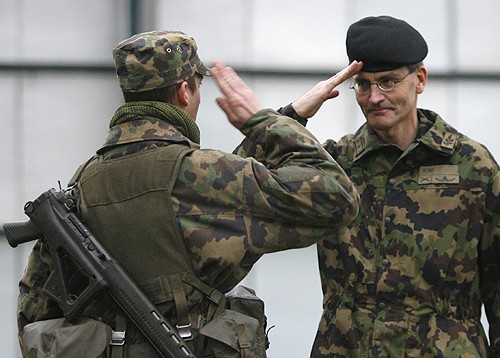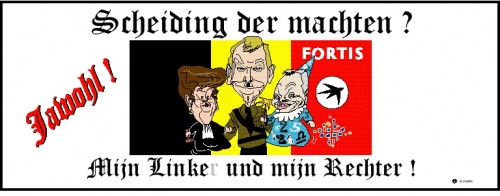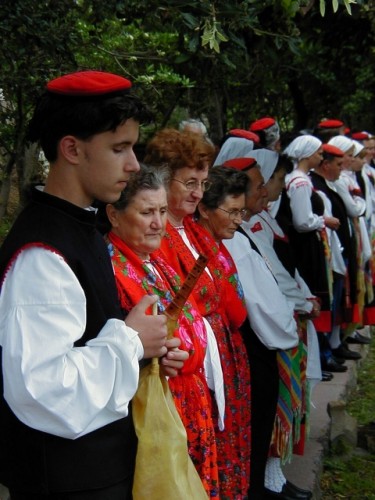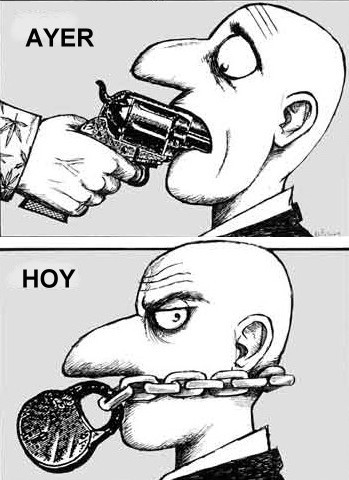The Rediscovery of Ethnic Identity
Dario Durando
The monumental events following the fall of the Berlin Wall (November 9, 1989) and the formal dissolution of the Soviet Union (December 25, 1991) brought about a radically new geopolitical order. They meant not only the end of the bipolar world and the partition of Europe as a result of the Yalta and Postdam agreements, but also the exhaustion of a turbulent cycle more than 70 years old, which defined a century of unprecedented violence. The end of this terrible period does not mean the "end of history" or the disappearance of force in relations between states. It does imply, however, a redefinition of those geopolitical relations leading to a more general evolution of thought and custom.
What is developing in social and political relations -- especially at the international level -- is a trans-modern Weltanschauung which approaches problems of state and society very differently from the way they have been dealt with in the 20th century. One of the characteristics of this new Weltanschauung is the rediscovery of values linked to "ethnic" identity (understood primarily in a cultural as opposed to a biological sense).
A New Trans-Modern International System
These new developments have been described as "a civilization of international politics."[l] While this characterization conceals questionable utopian features, it corresponds to actual international developments:
- The growing abrogation of the traditional principle of international law concerning unlimited sovereignty within state borders. Specifically, there is a tendency by the international community to exercise a kind of stewardship to safeguard human rights.
- Efforts to constitute a "new world order" based on the consensus of all the subjects of international relations, all having their own intrinsically "democratic" legitimacy. The US seems to have relatively clear ideas about the configuration of a "new world order." It is unlikely that these ideas, which presuppose the retention and strengthening of American hegemony, will be appreciated by the Europeans and the Japanese. It is clear, however, that the disintegration of the old bipolar order will have to be followed by a new system of international relations.
- The use of collective military force (within the framework of the UN, EC or CSCE) for peace-keeping. The fact that European political elites have proven pathetically unequal to the task in the former Yugoslavia does not rule out the need for military intervention in various situations to prevent violations of human rights and contain violence.
- The displacement of the narrow concept of national security -- the legacy of 18th and 19th century power politics -- infavor of collective defense or, rather, collective security (since it is inconceivable that today any state other than the US could meet its security requirements by itself or within the context of a system of traditional alliances).
- Finally, the gradual shift of sovereignty from national states to supra-national organizations, and an attendant acceptance of limitations of a contractual nature on the exercise of sovereignty.
During the last few years there has been a transformation of the international community from a Hobbesian array of entities permanently on a war-footing to a "society" of states sharing some principles and seeking, even if very gradually, to impose normative behavioral standards. Although the dissolution of a 40-year old order creates more problems than it solves and is a slow and difficult process, it now seems irreversible. This is because it is a process determined not by endogenous causes of the international system but by a more general and pervasive evolution that could be designated as the shift to the trans-modern age.[2]
This trans-modern age does not recognize social and political dogma --great collective objectives based on mythical-symbolic foundations ("the fatherland" or "the proletariat") and focused on limited areas of human experience related to individual behavior: well-being, hedonistic concerns and, more generally, the tree development of the individual personality. It involves things which in various ways are crucial precisely because they are the presuppositions of pressing individual concerns, i.e., ecological awareness, the needs of the weak, the rejection of imperialism and belligerent attitudes, the overbearing desire for "good administration" and more direct political participation. This explains, among other things, the explosive electoral growth of the Northern League in Italy.
The Threat of a Universal Standardization
The other side of this coin is the absolute emptiness of "postmodernity" and the dissolution of monadic states armed against each other. This process goes hand in hand, not only with a growing internationalization of the economy but with the globalization of culture (in turn generated by a growing interpenetration of axiological constellations). The result is the often denounced threat[3] of the global adoption of the prevailing cultural model -- the American model, which is hegemonic to the extent that it emanates from the richest society and the most prosperous economy.[4] This adoption translates into a "cosmopolitan" homogeneity in Spengler's sense: empty, false and superficial.[5] To use an abused but vivid metaphor, it translates into a "global EuroDisney," i.e., the triumph of that abstract ahistorical universalism roofed in the Enlightenment.[6]
The result is a world reduced to an immense market unified by the flow of goods, services and capital. It is culturally standardized because it is permeated by a global informational network that is a product of the hegemonic Anglo-Saxon culture industry, and it transmits with enormous symbolic impact the values of a consumer society. Politically, it is structured hierarchically with the US at the head always ready to brandish Theodore Roosevelt's famous big stick.
Ethnic Differences as Sources of Identity
The shift towards trans-modernity constitutes an irreversible historical process of the same magnitude as industrialization (which it mirrors, to the extent that the main characteristic of trans-modernity on the socio-economic level is the centrality of services based on information). The opposite can be said of the subjugation of the entire planet to a post-modem ideology that sees the economy as the foundation of the human condition, and differences or cultural specifities as minor and bizarre deviations from a global social "normality." These differences and specificities, however, constitute the most powerful obstacle to the diffusion of the universalist and economistic ideology, and to the transformation of the world in its image.
Cultural specificity is ethnic in character and must be approached in the context of an organized opposition to universal standardization. Here the anthropological and biological component of ethnicity is secondary, because it is irrelevant in social interactions. What is important is something else: the sense of ethnic belonging, i.e., an ethnic identification generated by a specific system of cultural production, cemented by a common language among the members of an ethnic group.[7] What is important about the ethnic dimension within the context of the contemporary global society is its ability to provide a "source of identity" -- a mechanism of identification based primarily on cultural and linguistic belonging, and only secondarily on a "blood-community." In other words, ethnic belonging is the ultimate form of generalized interpersonal solidarity and therefore the utmost instance of the "communitarian" and organic type of link described by Ferdinand Tonnies.[8]
The rooting of the individual within a "communitarian" environment characterized by strong linguistic and cultural ties represents the most effective antidote to the atomization and "anomie" typical of societies that Tonnies and Durkheim classified as "mechanistic" and which today could be called post-modern: unified at a global, artificial level because grounded in a sell-producing society, directed from the center of production of culture and information. In this global society the individual is increasingly alone. He is lost in the immensity of the social environment and exposed to an uninterrupted flow of information -- usually the product of other information. He is becoming less and less able to determine his own destiny and remains manipulated by those who hold the supreme power: the circulation of information.
The communitarian bonds peculiar to ethnic belonging are radically opposed to all these aspects of the globalized society. The experience of ethnicity reestablishes the individual at the center of a network of direct and immediate social relations -- immediate as the community of culture, tradition and language. It allows the recovery of contact with reality, beyond the mediating veil of self-perpetuating global information. It minimizes the influence of extraneous decisional powers to the ethnic communion and therefore allows for a more substantial participation by the single individual in processes of collective will formation.
Consequently, the so-called ethnic revival, the reappropriation by various ethnic groups of their own identity, the reevaluation of the "roots" of people and communities (i.e., the distinctive traits of their specific cultures), constitutes the most powerful weapon against global levelling -- the obliteration of differences, the depersonalizing fusion typical of "the melting pot" of global society. It is a powerful weapon against the universalist ideology of post-modernity, mythologized by the followers of so-called "weak thought."
Furthermore, it the rediscovery of the ethnic dimension means bringing the individual back in the center of social relations (as the actor of richer interpersonal relations, the subject interacting with a reality in fieri, and as the "citizen" actively involved in the decision-making process of his own community), how can it be denied that he is in step with the tendency of trans-modernity to center all aspects of reality around individual experience and to minimize, if not suppress, external conditioning? The specific line of development of a trans-modern approach can be seen as constituted precisely by the rediscovery of ethnicity: the "ethnic" -- and therefore federalist and autonomist --revolution as a global alternative to the crisis of the old order and to the threat of a new "post-modern" order that would obliterate all differences.
The Ethnic Revolution and the Shift to Trans-Modernity
Thanks to the resources they distribute, contemporary systems stimulate in individuals and groups the need for self-realization, communication and appropriation of the meaning of action, but they also expose them to fragmentation and conformity.[9] Traditional solidarity, ethnic identification and the particularism of language and culture can satisfy the needs of individuals and groups to assert their own difference in a context characterized by strongly impersonal social relations governed by the logic of organizations. Primary belonging and "birthplace" are brought into play in opposition to mass culture. Ethnic identity offers individuals and groups considerable certainty in an uncertain world. If territory is added to ethnicity, together they constitute the deepest dimensions of human experience. Birthplace not only has the power of tradition on its side, it counts on an even deeper bond in which biology and history combine. This is why the combination of ethnicity and territory has the explosive power to mobilize the innermost energies. While the other criteria of belonging weaken and recede, ethnic solidarity answers a need for a primarily symbolic identity. It provides roofs that have all the consistency of language, culture, and ancient history. The innovative component of national-ethnic identity has a peculiarly cultural character because the ethnic-territorial appeal challenges complex society concerning fundamental questions such as the direction of change as well as the production of identity and meaning.
Rooted in a heritage of relations and social symbols, difference addresses the whole of society about one of its radical dilemmas: how to save the meaning of human actions and the richness of diversity in a global context. Traditional language opposes the aseptic functionality of technological language and the newspeak of informatic language and advertisement. It articulates the many facets of human experience, the various nuances that have been sedimented in the deepest layers of human culture. The loss of this wealth is the loss of humanity as such. To this extent, national-ethnic movements speak for everyone --fortunately, still in their own language.
A broad survey of the different approaches to the problem of ethnicity has recently concluded that the classical view, according to which ethnicity is nothing but a "residual phenomenon in the transition from tradition to modernity" and is therefore destined to succumb to the inexorable advance of "secularization," is wrong and should be abandoned. On the contrary, "divisions, political mobilization and broad forms of social organization predicated on ethnic bases are not a residual phenomenon but will continue to have an important role in processes of collective mobilization and in systems of action. Their importance in industrialized society will increase. They must be considered as constitutive elements of these societies."[10] Thus it is necessary to start thinking in terms of ethno-territorial pluralism. It is illogical to go from the state, the nation and the "people" to the individual and to say that the ethnic communities within them do not count. It is unfair to accept or assume status and rights for states, nations and "peoples," and refuse them to historically-grounded ethnic communities.[11]
The goal must be to preserve, redefine and empower concrete and visible reference points -- ethnic formations as sources of symbolic identity and of a strong sense of belonging -- between the individual and the vast "uniform" expanse of global society.
Ethnic Groups and Abstract Jacobinism
The term "ethnic group" is used here to designate certain biological, linguistic, cultural and territorial realities in order to avoid the word "nation" -- a concept vitiated by terminological ambiguities. These ambiguities are a result of the fact that during the 19th and 20th centuries bourgeois ideologies have abusively applied the label of nation (which could be regarded as a synonym for "ethnic group" since the etymology refers simply to birthplace) to something other than the single ethnic group or nation. The nation of the Jacobins, the romanticists and finally the nationalists refers to the majoritarian ethnic group, or the hegemonic one which, through military power, conquers, dominates and often assimilates other ethnic groups. This was not just the case in France, but also in Spain, where for centuries what passed as Spanish (i.e., Castilian) was actually Galician, Catalan or even Basque.
Things are more complex, but it is sufficient to point out that ethnic groups here mean communities founded primarily on cultural, linguistic and territorial ties -- the culture of Bretons and not the one which, emanating over the centuries from the Ile de France, became hegemonic in Bretagne; the language spoken in Barcelona, not the one still imposed by law as recently as 15 years ago; the territory of the island called Ireland, not the two distinct sections in which it is still divided today.
In some cases, of course, an ethnic group may indeed correspond to a nation in the 19th century Jacobin sense (such as, e.g., Portugal and Denmark). One must, however, keep in mind that the relation between an ethnic group and the nation, and therefore the relation between an ethnic group and the unitary nation-state, is not obvious. not only can a state be multiethnic (e.g., Switzerland), but it can be so without admitting it (as in the case of France which, until very recently, did not even recognize the diversity of Corsica[12]), or admit it without drawing any consequences (as in the case of the United Kingdom, which does not deny the existence of a distinct Scottish and Welsh ethnic group, but would never dream of granting them any kind of autonomy).
Federalism, Regionalism and Independence
The rediscovery of a sense of ethnic belonging that reflects the individual's need for identity in today's atomized society is the first and most important step in contraposing the culture of differences and specificities to the universalistic and standardizing ideology of post-modernity (exemplified by the ubiquity of American audiovisual production). But where and how does the rediscovered and revitalized (or simply preserved) ethnic dimension fit in relations between states, nations and peoples? What place should ethnic groups occupy in the context of the new inter-state order that sooner or later will have to be built on the ruins of the old one?
The preservation of ethnic identity does not necessarily mean self-determination. It does not mean the uncontrolled proliferation of state entities predicated on mono-ethnic bases so as to turn the entire planet into an immense patchwork of small states, more or less ethnically "pure" and protected by external barriers and reciprocal defenses. This would not be a world society, global in dimensions and objectives but richly articulated with a flourishing of different experiences and particularities. Rather, it would be a bad replica of the 19th century system of nation-states, suspicious of each other and ready to go to war whenever border disputes arise.
Every ethnic group has to occupy its place in the community of peoples -- the place which history, geography and the dynamics of inter-cultural relations has reserved for it. More concretely, there are (and they are the most numerous) ethnic groups that constitute historically and culturally the hegemonic core (i.e., the nation in the Jacobin sense) of a "national unitary state" whose 19th century model still prevails.
French ethnic groups (Bretons, Flemish, Alsatians, Provencals) and Italian ones (Sardinians, Northerners belonging to the Italo-Gallic dialec, Ligurians, Piedmontese, Lombards, Northerners belonging to the Venetian group with Friulan -- South Tyrollans being something entirely different) clearly can only be located within the state to which they actually belong, whose structure has to be transformed in a federalist direction in order to allow each of them to preserve their cultural and linguistic characteristics (which, among other things, translates into a contribution to the cultural wealth and diversity of "French people," "Italian people" etc.).
Within the context of the existing unitary states, federalism is the most advisable solution for the protection and development of ethnic specificities. It is a matter of a development particularly suitable for Italy, where the aquisition of a common language (obtained probably at the price of a substantial cultural impoverishment) cannot hide the significant differences among the various ethnic components of the "Italian Nation." These are the result of the thousands of years that preceded the hasty centralist unification modeled on the the French experience. However, while an openly federalist proposal is always preferable in the abstract, it is clear that in countries such as France -- with a multi-secular centralizing tradition -- it does not have any chance of being considered for many generations to come. There, the proper model must be different and less ambitious: it will be a matter of regionalism -- a concept much more advanced than the actual division of the "Hexagon" in regions predicated merely on administrative decentralization. It will require an effort to make regions coincide with actual cultural and historical realities. There has recently been a proposal from groups extraneous to Savoyard autonomist groups to reunite the two departments of Savoy as an autonomous region which would reconstitute the territorial unity that lasted until 1860. It would also involve a transfer of power to the regions, no less important than that enjoyed by the Italian regions with special status.
A third and still different situation: ethnic groups that, because of anthropological, cultural and linguistic characteristics profoundly different from those of the hegemonic nation of which they historically have been a part, and because of the strength of their roofs in a given territory, can and must legitimately aim toward some form of self-government within a continuum that ranges from being part of a federal state (renouncing sovereignty only in foreign policy and security) to a confederation of sovereign states, to pure and simple independence. The Scots and the Basques belong in this category (in the same way that Slovenians, Croats and Slovaks have opted for total independence). As in the case of France, a note of caution is in order here. Since independence is highly unlikely, the defense and development of ethnic identity should be entrusted to less extreme means -- a hypothetical federal status for the Basque region, a semi-federal regional autonomy for Scotland (the devolution conservative governments stubbornly oppose).
There is yet another typology: trans-frontier cooperation among ethnic entities within the context of federal or at least regionalized states. It is a matter of relegating to local self-government, based on partial federal sovereignty or regional autonomy, further power to regulate matters through norms generated by "trans-frontier" agreements with federal states or regions belonging to other sovereign subjects.[13] At issue are those matters with trans-frontier relevance, i.e., major infrastructures, particularly in transportation, the environment, the exploitation of water resources, etc. Such an institutional framework is already provided by the "European General Covenant Convention," signed in Madrid May 21, 1980 dealing with trans-frontier or territorial collectivities and authorities promoted by the Council of Europe.[14]
The European Federation as a Common House of European Peoples
For Europeans the only institutional framework within which the recovery of ethnic belonging can take place is a federal one. The present evolution towards such an order undoubtedly will not produce immediate results because of considerable internal opposition. Yet this evolution ultimately will overcome (probably well into the 21 st century) all obstacles because only a broad continental aggregation with enormous economic, financial and cultural resources will be able in the future to compete successfully with other poles of world politics, such as the Pacific Rim and North America.
The future European federation will be founded on the principle of subsidiarity and will have to delegate not only to "nation-states," but also and above all to regional authorities, the necessary power to protect the ethnic identity of the various groups of European citizens. Within this framework a specific representation of single ethnic or regional subdivisions (including cases in which the regions have merely administrative objectives) will find a place next to the parliamentary organ elected by means of representative, direct and universal suffrage of all citizens without distinction (today's European parliament). The Committee of Regions projected by the Maastricht Treaty will lead to a real "Senate of the Regions of Europe" designated by parliaments, assemblies and councils of all the ethno-regional identities existing within EC member states.
* Originally published in Diorama Letterario No. 171 (Sept. 1993), pp.1-8. Translated by Franco Sacchi.
Notes:
- Hanns W. Maull, "Zivilmacht Bundesrepublik Deutchland. Vierzehn Thesen fur eine neue deutsche Aussenpolitik," in Europa-Archiv, No. 10 (1992), p. 269ff.
- Here "trans-modern" refers to the predicament resulting from the collapse of "modernity" (based on Enlightenment bourgeois values, all industrial economy and political and economic liberalism); while "post-modern" designates those social and cultural phenomena that are the end product of "modern civilization" and not part of its overcoming. On "post-modernity" as the mere dissolution of modernity, see Gianfranco Morra, ll Quarto uomo. Postmodernita o Crisi della Modernita (Rome: Armando, 1992), p. 22:
- See Serge Latouche, L'Occidentalizzazione del Mondo. Sagaio sul Significato, la Portata e i Limiti dell'Uniformazione Planetaria (Turin: Bollart Boringhieri, 1992).
- On symptoms of US cultural, economic and social decline, see Roberto Menotti, "I1 Dibattito sul 'Declino Americano'," in Politica Internazionale, Nos. 1-2 (1992) p. 115 ff.
- See Oswald Spengler, ll Tramonto dell'Occidente (Milan: Longanesi, 1981), p. 922.
- See Carlo Gambescia, "Comunitarismo contro Universalismo. Per una Critica del Paradigma Occidentale della Modernizzazione," in Trasgressioni, No. 14 (January-April 1992), p. 22ff.
- Although somewhat dated, Anthony Smith's definition of"ethnic community," originally formulated in 1981, remains useful. See ll Revival Etnico (Bologna: 11 Mulino, 1984) p. 114.: "A social group whose members share a sense of common origins, claim an historical past, and a common and distinctive destiny, possess one or more peculiar attributes, and perceive a sense of collective unity and solidarity." Naturally, one of the "primordial" bonds for the formation of a sense of ethnic community is language. On "ethno-politics," see James Kellas, Nazionalismi ed Ernie (Bologna: I1 Mulino, 1993).
- Recall the distinction between community and society outlined at the beginning of the second chapter of his famous work: "The theory of society moves from the construction of a group of men who, as in the community, live and dwell peacefully one next to other, no longer essentially bound, but separated. They are separated despite all the bonds. In the community they remain bound despite all the separations." See Ferdinand Tonnies, Comunita e Societal (Milan: Comunita, 1963), p. 83.
- Paraphrased from Alberto Melucci and Mario Dani, Nazioni senza Stato. I Movimenti Etnico-Nazionali in Occidente (Milan: Feltrinelli, 1992) p. 184-96. The two authors have grasped with remarkable lucidity the liberating essence of the ethnic revival.
- Daniele Petrosino, Stati Nazioni Elnie. ll Pluralismo Etnico e Nazionale nella Teoria Sociologica Contemporanea (Milan 1991), pp. 19 and 173.
- V. Van Dyke, "The Individual, the State, and the Ethnic Communities in Political Theory," in World Politics, Vol. XXIX (1977), p. 369. Cited in Petrasino, op. cit., p. 203.
- France still officially rejects the concept of"Corsican people within the context of the French people." See the decision of the Conseil Constitutionel n. 91-290 DC of May 9, 1991, that struck down as unconstitutional Article 1 of a bill on Corsican autouomy (now law n. 91-428, May 13, 1991), which used this designation. See Edmond Jouve, Relations lnternationales (Paris 1992) p. 170 ff.
- It is quite normal that confederate states maintain "sovereign" powers even in matters of international relations, as in the case of the Swiss Cantons, according to Article 9 of the federal constitution.
- With regard to the cultural roofs of the political and institutional concept of "trans-frontier cooperation," an obvious case is that of the Western Alps. It is appropriate to quote here an academic with no "separatist" sympathies, who was also a member of the Italian Parliament for the Italian Republican Party: "The long common vicissitudes which brought together Piedmont and Savoy demonstrates that the real Europe, the one of the people, can be created. A Europe beyond treaties and parliaments, which would become a meeting place in mutual dignity and freedom for all the small homelands of the West, which the national states have coerced with considerable violence." See Luigi Firpo, Genre di Piemonte (Milan 1993), p. 8.
[Telos, Fall93, Issue 97]





 del.icio.us
del.icio.us
 Digg
Digg














